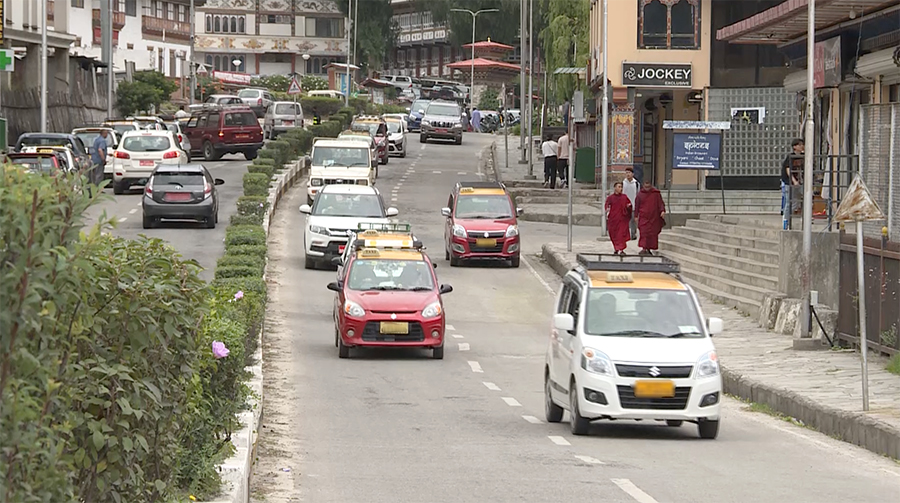
Commuters in Thimphu are voicing their concerns about high taxi fares, which often exceed the rates set by the Bhutan Construction and Transport Authority. According to passengers, taxi drivers are not adhering to distance-based pricing but are instead charging lump sums for reservations.
According to the Bhutan Construction and Transport Authority or BCTA, passengers are supposed to pay about Nu 12 from the Lungtenzampa bus terminal to the Centenary Farmers’ Market area. And if it is a reservation, the fare amounts to Nu 47. The authority revised this fare in February this year.
BCTA revises the taxi fares every six months considering factors such as fuel prices, vehicle costs, and maintenance charges.
However, despite these official rates, some passengers said that taxi drivers are demanding more than Nu 120 as a reservation fare.
A man who refused to come on camera said that he was charged Nu 120 from Kawa Jangsa to the core town which usually costs 30 ngultrum.
According to the BCTA, taxi fares should be calculated based on the distance travelled. Presently, the rate stands at about Nu 23 per kilometre.
Although the passengers are voicing their concerns, not many have lodged formal complaints with the Bhutan Construction and Transport Authority. The authority confirms receiving a few grievances and has asked the taxi drivers to refund excess amounts and imposed fines.
The authority encourages people to come forward and report such incidents.
Meanwhile, the chairperson of the Bhutan Taxi Association explained why taxi drivers are charging higher rates.
“Drivers will incur a loss if it is based on distance travelled since most roads in Thimphu are one-way which requires us to make U-turn from afar. The taxi association suggested that we should fix a rate for taxi fares. For instance, passengers should pay between Nu 60 to 70 upon getting in the taxi, and from then on calculate as per the distance. This will be convenient for both the drivers and the passengers,” said Rinzin Chophel, Chairperson of the Bhutan Taxi Association.
Unless the Bhutan Construction and Transport Authority monitors the taxi fares regularly or explores other alternative solutions, the issue of high taxi fares is likely to continue.
Deki Lhazom
Edited by Tshering Zam


